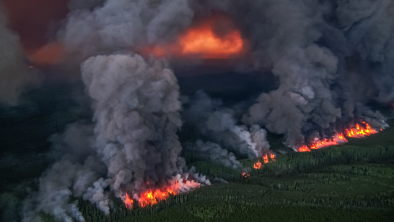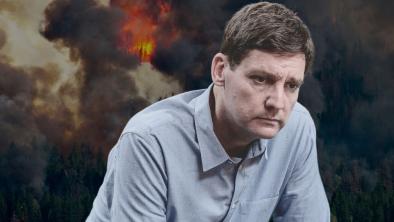OPINION: Environmental groups want healthy forests and communities
North Island Gazette

“We work to mobilize action on some of the most pressing issues facing our society today”
We work for environmental organizations and we don’t want to see hardship in North Island forest communities.
The fact that we need to say this speaks to both the past shortcomings of the environmental movement and to misconceptions about us today. We both grew up on the West Coast, and both of us and most of our families live on the Island. We do what we do because we love this place.
Its forests, rivers, islands, mountains, beaches and inlets, yes, but also the people who live here.
We’re concerned about the ecological impacts of various industries and about the ability of future generations to enjoy the same opportunities for fulfilling, healthy lives that we have here.
When it comes to forests, we’re not shy about where we’re at. These ecosystems haven’t been managed responsibly and we want major policy changes, from protection of remaining old-growth to an end to raw log exports.
But this doesn’t mean we don’t care about the communities whose economies include these things right now.
It’s possible to want to change something that currently benefits people while still wanting the best for them, to leave behind certain parts of an industry but not the workers who currently do those jobs.
In today’s world of social media scrolling and shallow, lightning-fast news, the nuance of this position is often lost, simplified to the point where people think if someone doesn’t like old-growth logging then they don’t think the people involved in it have value.
This couldn’t be further from the truth.
We work to mobilize action on some of the most pressing issues facing our society today. The West Coast is not immune to the global climate and biodiversity crises, and everyone living here has a huge role to play in both combatting and mitigating these threats.
What’s more, we must find solutions grounded in justice for Indigenous peoples, for a return of authority and land to the Nations that have been here since time immemorial.
Call us idealistic (you wouldn’t be the first) but we believe all of this is possible.
No, we don’t have all the answers — no one does — but we spend as much time and energy as we can in trying to learn them. In the case of forestry, many of these answers have to come from forest communities.
Over the last few years, Wilderness Committee and Sierra Club BC have spent months on the backroads of Vancouver Island, in meetings with First Nations and municipal governments and in public town hall meetings in Port Hardy, Port McNeill, Campbell River, Port Alberni, Nanaimo and half a dozen other communities.What would have been our fourteenth public discussion, late last November, was cancelled by the City of Campbell River due to its concerns about safety, leaving us frustrated and disappointed.
We’ve since developed a working relationship with the city staff to find a way to reschedule.
Although the Western Forest Products strike has now come to an end, we know people up and down the Island will continue to feel the impacts of it and other curtailments and closures for some time. We acknowledge that a big public presence from us isn’t seen as particularly sensitive or helpful right now so we’ve decided to wait a little while.
In the meantime, we’re going to continue our learning through smaller meetings with people in the logging industry, municipal governments and First Nations, and others on the North Island.
At some point in the next month, we hope to hold a few ‘café chats’ — informal conversations in a coffee shop setting with anyone who’d like to talk with us. Stay tuned for those details as we’ll announce times and locations soon.
If you want to touch base and share your thoughts about forests or forestry or about our approach, please send us an email at letstalkforests@gmail.com.We believe there are some serious environmental problems on this coast and we’re passionate about tackling them.
At the same time, we think everyone in every community deserves dignified and fulfilling livelihoods in a vibrant sustainable economy.
We’ve got a lot of work to do and a lot of trust to build but we remain hopeful that we can get there together.
Thanks for reading, and we hope to talk to you soon.
Mark Worthing is Climate and Conservation Campaigner at Sierra Club BC. Torrance Coste is National Campaign Director at the Wilderness Committee.
To read the original article published on the North Island Gazette please click here.


